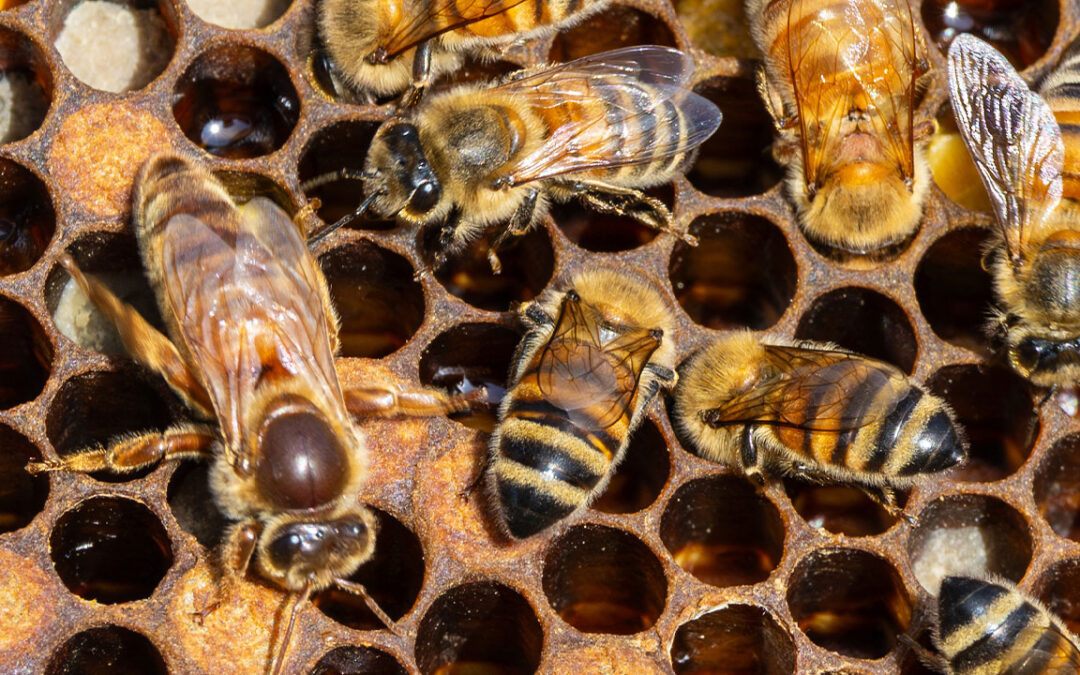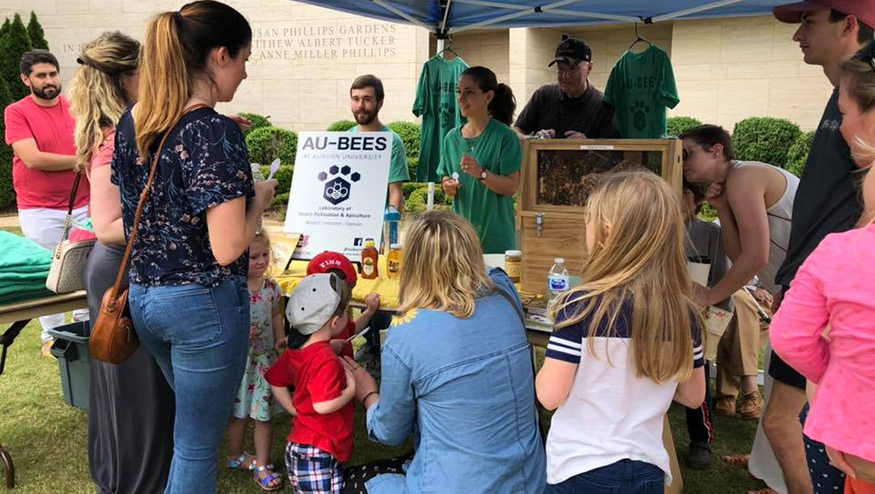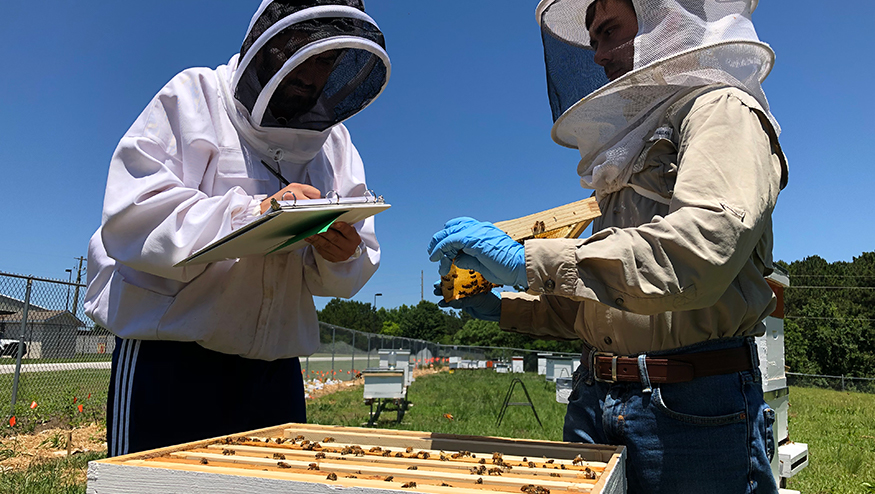Auburn University Bee Laboratory
Our mission is to understand and promote bees through research, instruction, and outreach.
Sweet Honey
The amazing natural sweetener & rapid source of energy!
Our Honey
Honey is a truly amazing thing. Mainly composed of simple sugars and water, its value as a natural sweetener and rapid source of energy has been known for millennia.
Several different bee species produce honey. Among the most well-known is the western honey bee Apis mellifera. It’s the only species of honey bee in the United States.
The color, flavor, and aroma of honey are influenced by many things, but the most important is the type of sugary secretion collected by the foragers of a colony. Perhaps it is floral nectar collected from plants like clover, goldenrod, or tupelo, or maybe it is animal secretions produced by other insects like aphids. With a bit of modification, both can result in honey!
The Alabama Extension publication Nectar and Pollen Producing Plants of Alabama: A Guide for Beekeepers by Jim Tew and colleagues provides a list of important floral nectar sources for honey bees in the region. Around Auburn, important sources of nectar for honey bees are clovers, Chinese tallow, privet, and tulip poplar.
ENPP News

U.S. Beekeeping Survey reveals highest honey bee colony losses during 2024-2025
The annual U.S. Beekeeping Survey results are in for the 2024-2025 calendar year. In collaboration with Auburn University, the Apiary Inspectors of America, Oregon State University and others, the national survey estimated that 55.6% of managed honey bee colonies were...

Understudied cotton is the focus of Auburn University research on seedling diseases
Cotton is undoubtedly one of the most recognizable plants in the world, with its heart-shaped leaves and branches that explode into powder-white fruit. But it’s also one of the more understudied field crops. “Previously, it was unclear where and which specific...

Pest management solutions: Faculty and students receive regional recognition
Auburn University graduate students and one faculty member rose above and beyond for this year’s Southern Integrated Pest Management (IPM) Awards. For the first time, two Auburn doctoral candidates, Caitlyn Lawton and Rogan Tokach, were honored for their achievements...


